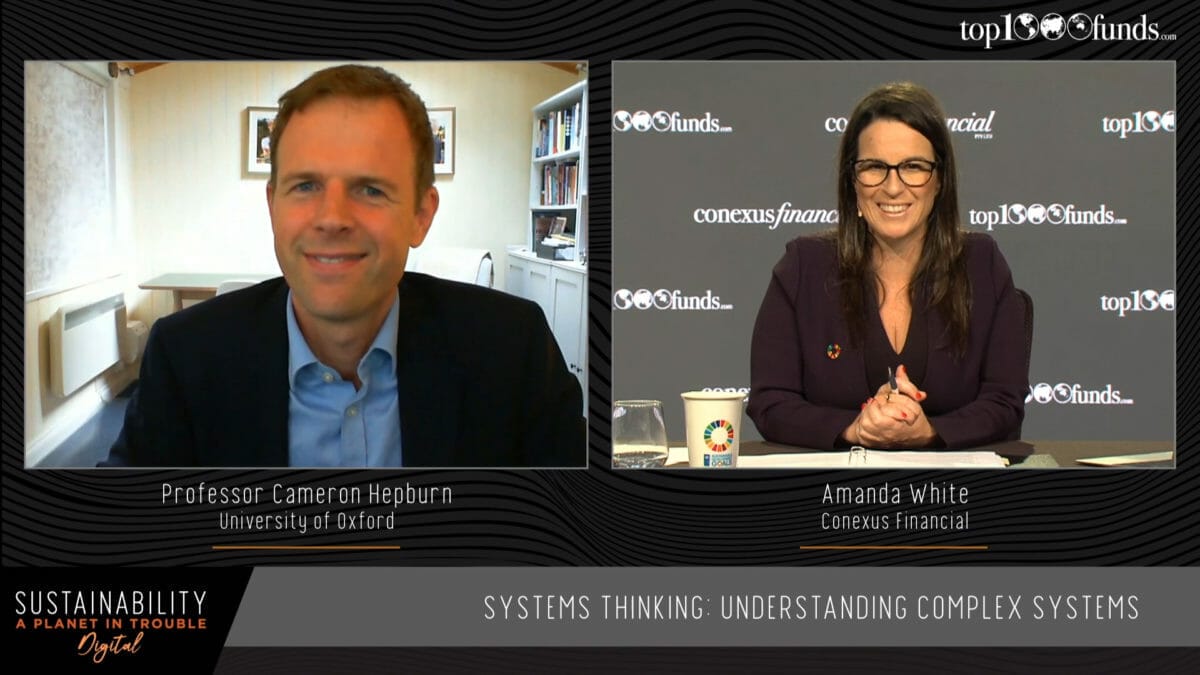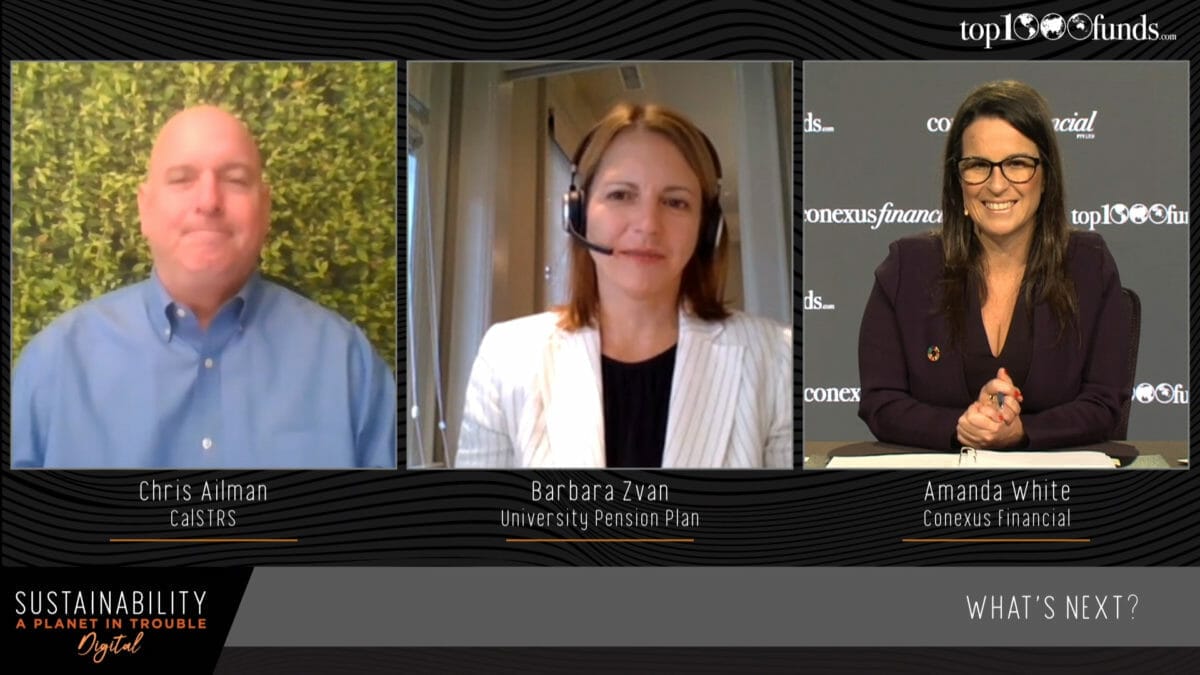Political and social systems, like physical landscapes, have non-linear dynamics that suddenly reach tipping points after which there is no going back. Investors should ready their portfolios, urges Professor Cameron Hepburn.
The whole economic system needs to change to deliver sustainability, said Professor Cameron Hepburn, professor of environmental economics, University of Oxford.
Speaking at Sustainability Digital, Hepburn opened with a warning that physical systems are not necessarily linear. The rapid melting of Greenland’s ice sheet holds the risk of it reaching a tipping point “and the whole system collapsing.” Similarly, social and political systems can reach a tipping point triggering huge and sudden change.
The Berlin Wall fell bringing with it the downfall of a whole system of economic thought.
“Is capitalism in peril?” he asked. “We are approaching a critical point.”
He told investors that they can’t drive looking in the rear-view mirror or walk backwards towards a cliff edge. Investors need to understand, and piece together, the risks ahead.
Like other speakers, he said the pandemic poses an opportunity. Governments are pouring trillions into the rescue and recovery and should ensure the money goes into assets fit for purpose. The signs are encouraging. He said the last crisis “did a few percentage points” for sustainability but in contrast some countries today have put nearly half of their stimulus to green initiatives, others have allocated 25 per cent.
Hepburn noted “strong support” among governments to put money to the green stimulus. In what he called a juncture, and break in the system triggered by the pandemic, he said many governments have realised this is a moment to push hard on sustainability and the SDGs. Quoting statistics that point to 80 per cent of people in China, Mexico and India wanting a green recovery he said the “world is not linear” and that investors needed to “have a handle” on how system dynamics could affect their portfolios.
Flagging possible change in the future, he asked delegates to consider the prospect of the main accounting firms requiring Paris-aligned accounts.
“If you aren’t reporting on these numbers are you misleading your investors,” he asked. He urged investors to think how their portfolios would be affected by a net zero world and in another aside, questioned the oil price assumptions made by some of the big oil companies.
A Paris-consistent oil price, whereby demand falls away as the world moves towards net zero, puts oil at around $20 a barrel, he said. In contrast, some oil groups price oil at around $80 a barrel.
“Is this justifiable in a Paris-aligned world,” he said, urging investors to rethink and adjust their capital allocations accordingly.
“The point to take away is that this is about non-linear dynamics and systemic change. You need a good understanding of tipping points so as not to be caught short in years to come,” he said.
Hepburn detailed how he and colleagues are also exploring sensitive intervention points that could accelerate the transition to net zero. For example, what kind of strategically targeted law suit could create a precedent that forces change, he said. Alternatively, what kind of joint political announcement could trigger change in governments’ response to climate change. In another hypothesis, the team of researchers are asking what kind of technology could massively accelerate the transition.
Hepburn said money (the kind we haven’t seen before) flowing into the green stimulus is going to change cost structures and the way different technologies “roll out.” He said that countries have “all to play for” noting leadership in Europe, and casting ahead to China’s next five year plan.
“China is thinking this through right now,” he said, forecasting China pushes hard on clear energy but still has big sources of dirty energy too.
“As for the size of America’s green stimulus? Everything hinges on the election.”
Hepburn said that governments are key actors and reiterated the importance of a carbon price, calling it potentially transformative. However, he said other levers are also at play in the world’s move to sustainability.
“A carbon price is not the only intervention,” he said. “We need to paint on a broader canvas.”
For all the conference sessions, stories and white papers visit the Sustainability content hub here.




